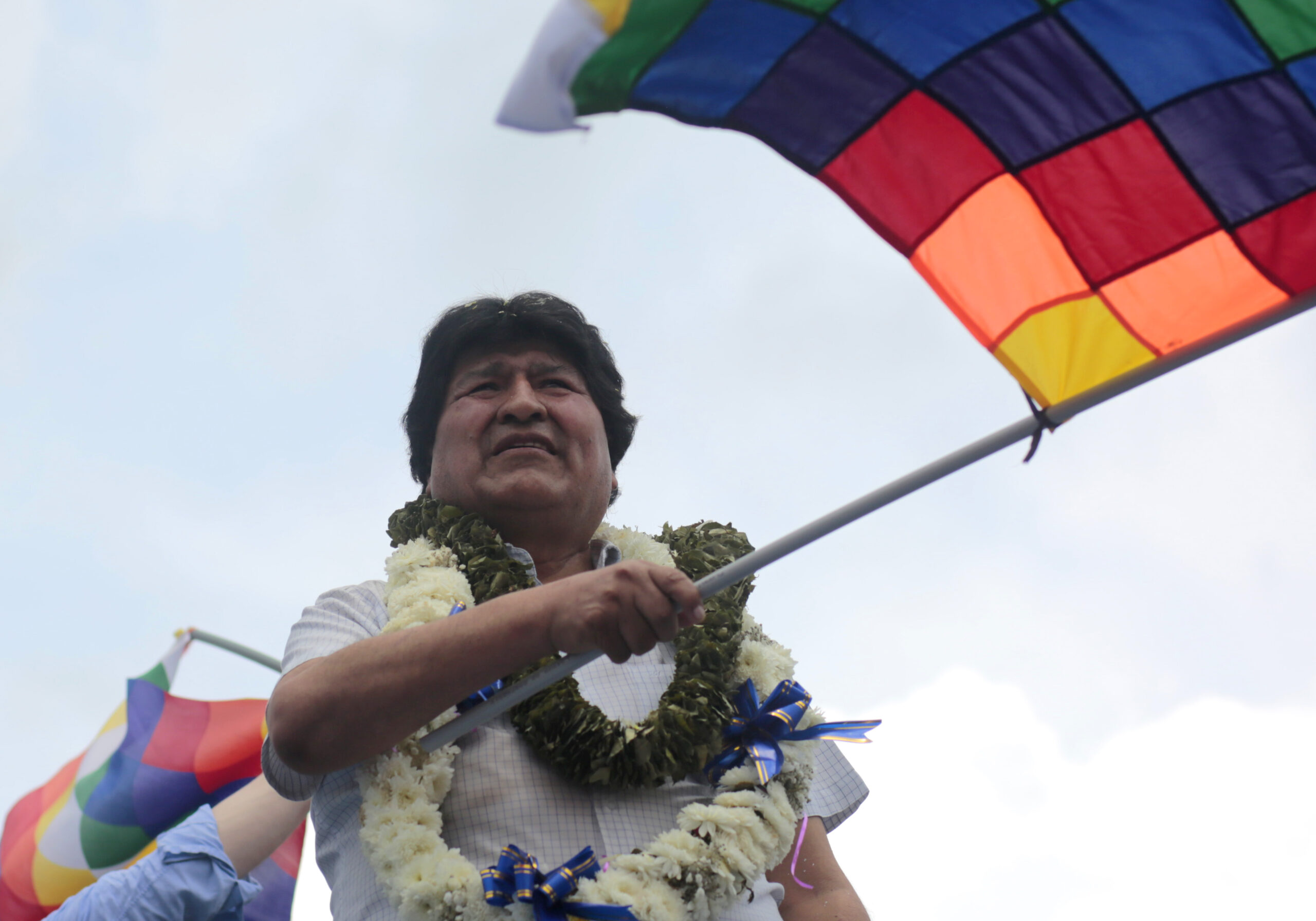- August 12, 2025
This Latin American country may swing right after 20 years of populist leftist rule

Here’s encouraging news for supporters of democracy and economic freedom in the Americas: After 20 years of nearly uninterrupted rule by leftist governments closely tied to Venezuela, Cuba and Iran, the right-of-center opposition in Bolivia is likely to win the Aug. 17 elections.
Bolivia, which sits atop some of the world’s largest lithium reserves, is going through its worst economic crisis in nearly three decades. Inflation is spiraling out of control and there are shortages of food and gasoline.
Not surprisingly, the leading candidates in the polls are those offering a drastic shift toward a market economy and closer ties with the United States.
Samuel Doria Medina, a multimillionaire businessman, leads the race with 24% of the vote, followed closely by former President Jorge “Tuto” Quiroga with 22%, according to an Aug. 2 El Deber poll. Leftist candidate Andrónico Rodriguez, weakened by a fracture within the ruling Movement Towards Socialism (MAS) party, lags far behind with just 7%.
Earlier this week, I spoke with both frontrunners. Each vows to cut public spending, attract investments and freeze ties with Venezuela and Cuba. Both also pledge to upgrade ties with Washington. Bolivia and the United States have lacked ambassador-level relations since 2008, when the South American country expelled the U.S. ambassador.
Doria Medina told me, “Bolivia has been isolated internationally in the past 20 years, voting in support of Iran alongside Cuba and Venezuela in the United Nations. That will stop. We don’t want such friendships. We want wide-ranging ties with the United States.”
He added that he would “freeze” but not sever diplomatic ties with Venezuela and Cuba. His first foreign trip as president, he said, would be Brazil — seeking investments to resurrect Bolivia’s vital natural gas industry after two decades of government neglect.
Doria Medina also plans to withdraw Bolivia from the Venezuela-led ALBA bloc of Latin American radical leftist countries, but would keep its status as associate member of the BRICS bloc led by China, Russia, India and Brazil. “We need investments, so I don’t see anything wrong with the BRICS,” he told me.
Unlike his rival Quiroga, who has hinted he may withdraw or renegotiate Bolivia’s membership in the Mercosur trade bloc made up of Brazil, Argentina, Paraguay, Uruguay and Bolivia, Doria Medina said he would keep Bolivia in that bloc.
Quiroga, a U.S.-trained engineer who served as president from 2001 to 2002, told me that he would keep Mercosur’s education and cultural agreements, but reject its restrictive trade rules. He would seek trade deals with European and Asian countries, and with the United States, he told me.
On foreign policy, Quiroga promised to break relations with Venezuela, Cuba and Nicaragua until those countries abide by inter-American democracy treaties and hold free elections.
“I don’t want to have anything to do with those countries,” Quiroga told me. “As president, wherever I am, I will fight for them to recover their democracy and freedom.”
His first foreign trip as president, he said, would be to the United States, seeking an international rescue package from world financial institutions to restart Bolivia’s economy.
Granted, much can change in Bolivia’s election. If no candidate gets over 50% of the vote this month, a runoff will take place Oct. 19.
Former leftist president Evo Morales — now in hiding in his coca-growing stronghold after an arrest warrant on charges of sexual abuse involving a 15-year-old girl and separate charges of inciting violence — has asked his followers to cast blank ballots. He has called Rodriguez “a traitor” for not backing his own candidacy.
If Morales shifts course and backs Rodriguez, or another contender, the first round could become a three-way race.
Still, with Bolivia’s economy in crisis and polls favoring a drastic change, the odds are that a right-of-center candidate will win the presidency. After two decades of free-spending leftist populism that has bankrupted the country, Bolivia has few options but to embrace responsible economic management.

